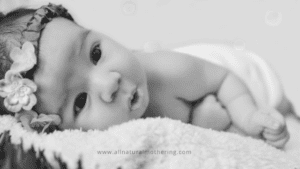The time after having my miscarriage was one of the loneliest times of my life. I was new to Canada and had very few friends to call my own. Luckily, I was blessed with a great church family, that took me in and helped me through it.
Other than some of my husband?s friends who came to visit us, many didn?t want to talk about our loss, assuming that it would make me uncomfortable. They would give me an empathetic look, but wouldn?t ask me about what happened or how I felt.
In their defense, they feared that their questions might make me relive the past or even worse, make me cry! I was an emotional wreck during the months following my miscarriage, and I certainly would have teared up in those encounters, but I would have felt better crying with someone rather than sitting alone and crying by myself.
I?m in no way trying to blame anyone. I would have probably been the same had I not experienced this myself. We all mean well. We are sorry for them. We talk about how this would have torn them apart in their absence. But, when we look at them directly to their face, we pretend as if nothing happened and try to avoid this sensitive topic.
We think we are doing this for their benefit because we don?t want to remind them of their loss. But what we fail to understand is that the only way we can help them cope with their loss is by acknowledging what happened and be there for them as they mourn through it.
Here are five ways how you can support a friend and help her through this painful episode of her life.
1. Be there:
If there is a time in your friend?s life that she needs you the most, it?s probably after a loss of her baby. If you can, visit her. If not, talk over the phone, text or even Skype. Simple questions like, ?How are you feeling? Can help her feel loved. Show her that you care, hold hands or hug her. Listen to all that she has to say. You may not have answers to all her questions, and that?s okay. Just let her vent, and she would feel better knowing that she can share her heartache with someone.
2. Bring a meal or help with other chores:
Along with emotional trauma, she can be physically exhausted. Loss of sleep, forgoing meals would leave her with little energy. Make her a comforting meal and drop it at her place. Does she need some groceries? Offer to pick some for her or if she feels up for it, take her out for some grocery shopping. Fresh air can be a good diversion.
One of the most painful things to do after losing a baby is putting away all the baby things they have bought with such high dreams & hope. Offer to help return baby items or to put away the nursery.
3. Value her loss:
It is very common in our society to not talk about miscarriage. Regardless of the age, born or unborn, it?s her baby, a baby she gave life to and nourished it with her body. A baby that she loves with every piece of her heart. Not acknowledging her loss would make her suppress grief which is unhealthy.
Even today, a lot of mothers do not feel comfortable talking about their miscarriage as they fear being shut down. Value her loss, make her feel comfortable sharing her loss with you.
4. Reassure her :
Guilt and self-blaming can peak after a miscarriage/ infant loss. As mothers, we are designed to protect and nourish our babies. Miscarriage can make us feel like that our own bodies have betrayed us. Infant loss can bring self-doubt ? questioning everything we could?ve done to prevent this tragedy. Reassure her that is it not her fault. Tell her that she is a wonderful mother and what happened was beyond her control.
5. Support continually:
Healing from a loss of a baby takes time and is different for different women. Even after three years, it still brings me tears when I think of my miscarriage. Remember the child?s birthday and send her a message, give her a candle or a card. Do little things to let her know that you haven?t forgotten her little angel.












